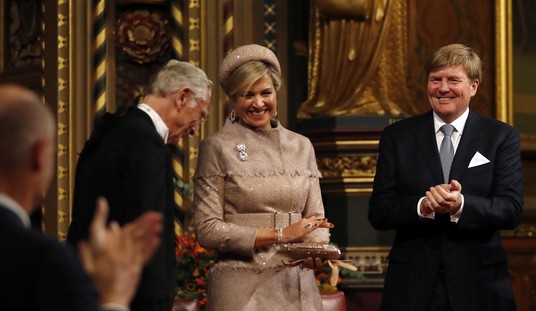Let the Braveheart references be unleashed in comments sections across the blogosphere! What looked only a few months ago like a long shot at best may in fact come to pass. There’s a vote coming up in the UK in less than two weeks which will determine if Scotland will move toward independence, and the tides seem to be turning.
The prospect was raised as a shock poll showed that 51 per cent of Scots would vote ‘Yes’ to going it alone with just 49 per cent saying ‘No’.
The results of the YouGov survey means that the ‘Yes’ campaign has overturned a 22-point lead within a month.
Until now, Mr Salmond’s SNP has insisted that a separate Scotland would be part of a common, free movement area with the rest of the UK and Ireland.
The issue now being raised is whether or not a move for independence would result in a more restricted border situation, where citizens now enjoy an essentially fluid ability to travel across the UK.
Ed Miliband today issues the stark threat that manned border posts could be introduced if Scotland backs independence in next week’s historic vote.
With just 11 days to go until the referendum – and polls showing growing momentum for Alex Salmond’s nationalists – the Labour leader has urged voters to face up to the consequences of severing the 300-year-old Union.
‘If you don’t want borders, vote to stay in the United Kingdom,’ Mr Miliband said in an interview with today’s Scottish Mail on Sunday.
The border issue is an important one to be sure, but I’m even more curious as to what the new Scottish government would look like. Would it be essentially the same as it is today, but without the English overriding influence? Or would they go back to having a monarch of their own? Say… when was the last time the Scots had a real monarch that wasn’t from England? Queen Anne has some sort of claim to that title I suppose, though she actually ruled over the combined realm. Either way, the entire Restored House of Stewart was fairly English in flavor. King James VI (of the original House of Stuart) was the King of Scotland in 1567, but became King James I of England and Ireland in 1603. We might have to go back to Mary Queen of Scots for the answer, but even she spent most of her time in France.
But as to the question of what all this means, see the observations of Andrew Stuttaford – himself a UK native – who thinks there may be a lesson here for the United States when it comes to the “unraveling” of nations. Stuttaford previously expressed some of his misgivings about an independent Scotland, not because he’s not in favor of nationalist autonomy, but because the conditions today are ripe for disaster.
The problem with an independent Scotland is not that the economics are dodgy (although they are), but it is that that is in the grip of an authoritarian leftist political class, a grasping, thuggish vulture class that should be wished on no people. There is also the little matter of the EU. If an independent Scotland wished to join the EU (the membership it “enjoys” through membership of the UK would probably not survive) its (enthusiastically europhile) leaders would have to commit to joining the single currency as soon as Scotland satisfied the necessary tests. They deny that, but the EU’s rules are clear. The euro would ruin what’s left of the Scottish economy and make a mockery of “independence.”
That has the ring of truth to it and carries the standard warning of being careful what you wish for. The Scots need to think this through carefully and make sure that they aren’t jumping out of the frying pan and into a Euro-based fire. Anyway, best of luck to the UK. Hopefully this doesn’t turn into a disaster for them.








Join the conversation as a VIP Member